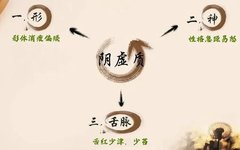
Author: Chen Chuxiong
Reviewed by: Qiu Kaifeng
Institution: Sun Yat-sen Memorial Hospital, Sun Yat-sen University
Source: Yixian Pharmacy
The Yin deficiency constitution refers to a condition where there is insufficient Yin fluid in the body due to dysfunction of the organs, leading to symptoms such as thirst, dry throat, and internal heat due to Yin deficiency. Common manifestations include flushed cheeks, heat in the palms and soles, night sweats, and internal heat; a red tongue with little moisture and a thin coating, constipation or dry stools. Individuals may appear thin, have a short temper, feel irritable, and experience short sleep duration; they often complain of dry and tired eyes, blurred vision, dizziness, tinnitus, and dry skin; men may experience nocturnal emissions, while women may have scanty menstruation.
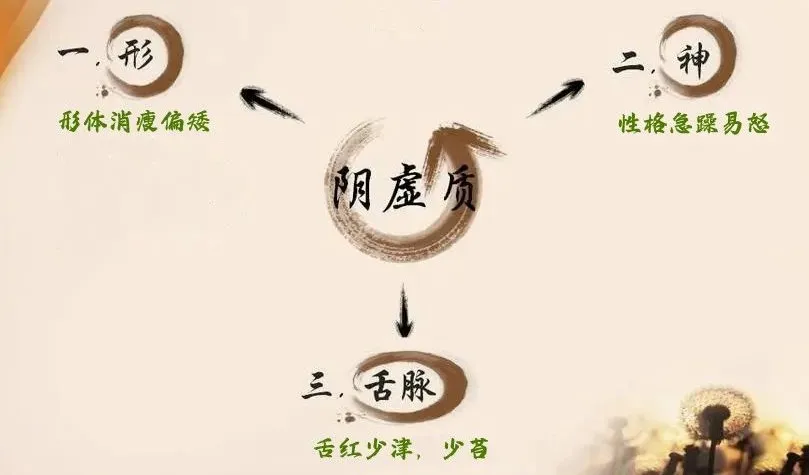
In daily life, we should conserve energy and protect our “Yin”. One should not assume that being in good spirits and having a strong body allows for indiscriminate consumption of energy; often, we are overextending ourselves without realizing it. For example, long-term consumption of spicy and warming foods can easily deplete the body’s fluids, exacerbating or promoting a Yin deficiency constitution; excessive exercise and sweating can lead to excessive loss of Yin fluids; prolonged illness, staying up late, and emotional instability can easily lead to a Yin deficiency constitution.
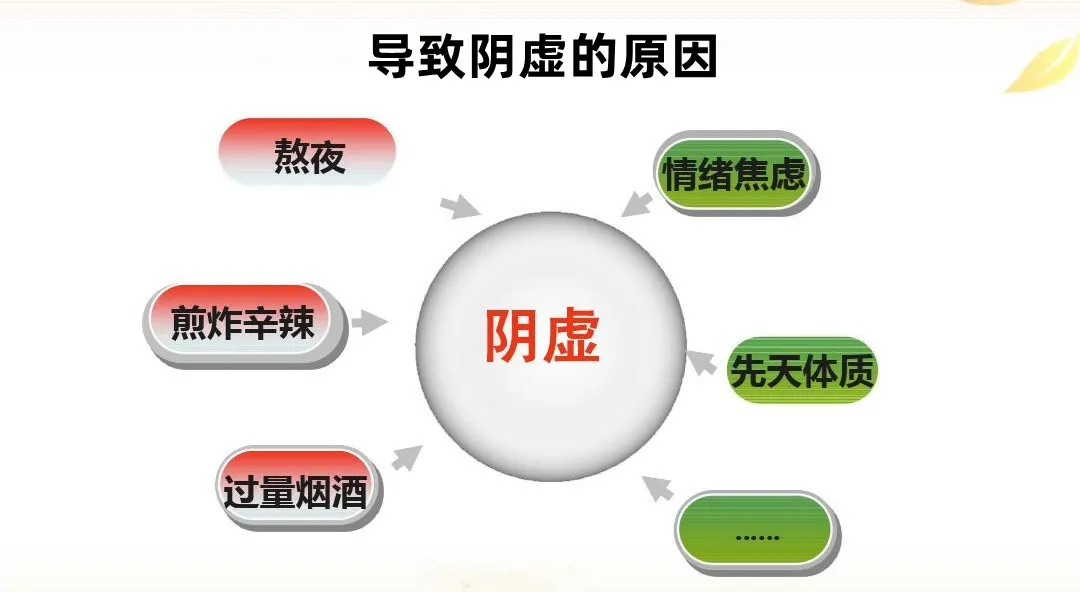
The key to nourishing a Yin deficiency constitution lies in replenishing Yin, following the principles of nourishing Yin and clearing heat, and nourishing the liver and kidneys. Foods that are sweet, cool, and neutral are good companions for those with Yin deficiency. Recommended foods include: Tremella (Yin Er), Bird’s Nest (Yan Wo), Lily (Bai He), Mung Beans (Lu Dou), Peas (Dou Zi), Spinach (Bo Cai), Bamboo Shoots (Zhu Sun), Water Spinach (Kong Xin Cai), Lotus Root (Lian Ou), Winter Melon (Dong Gua), Loofah (Si Gua), Bitter Melon (Ku Gua), Watermelon (Xi Gua), Nori (Zi Cai), Snow Pear (Xue Li), Pomelo (You Zi), White Radish (Bai Luo Bo), Tofu (Dou Fu), Soy Milk (Dou Jiang), Chinese Cabbage (Da Bai Cai), and Water Bamboo Shoots (Jiao Bai Sun).
Below, the pharmacist introduces ten herbs that nourish Yin for your reference.
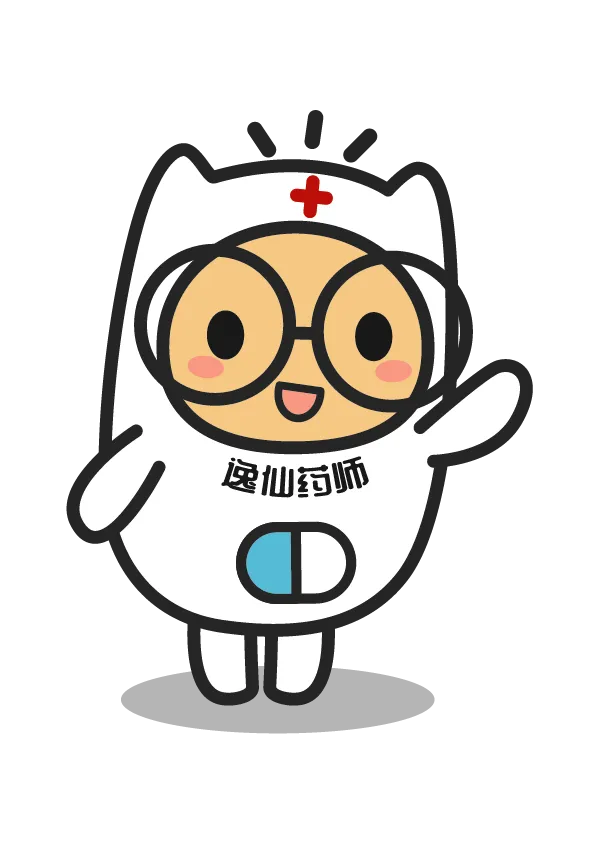
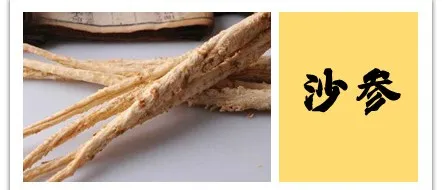
Sha Shen (Radix Adenophorae) is mentioned in ancient medical literature as a guide for Sha Shen, later classified into two types in the “Compendium of Materia Medica” (Ben Cao Gang Mu Shi Yi), namely Bei Sha Shen (North Sha Shen) and Nan Sha Shen (South Sha Shen). Both types have similar properties and effects, primarily used for lung and stomach Yin deficiency. The main difference is that Bei Sha Shen has a stronger effect in clearing and nourishing the lung and stomach, suitable for lung and stomach Yin deficiency with heat; Nan Sha Shen also has the effect of benefiting Qi and resolving phlegm, thus more suitable for cough with dry phlegm caused by both Qi and Yin deficiency.

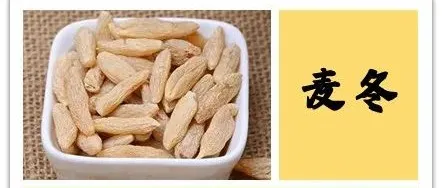
Mai Dong (Ophiopogon japonicus) is a perennial herb of the lily family, with sweet and slightly bitter taste, and slightly cold nature. It enters the lung and stomach meridians. It nourishes Yin, moistens the lungs, benefits the stomach, and generates fluids, clearing the heart and relieving irritability. It can be used for dry cough with phlegm due to lung Yin deficiency, cough with blood due to exhaustion, etc. Mai Dong can benefit the stomach and generate fluids, clear heat and moisten dryness, making it an excellent remedy for symptoms of stomach Yin deficiency, such as thirst, dry throat, and constipation. It can also be used for heart Yin deficiency and warm disease heat disturbing the heart, leading to irritability and insomnia, with a red and dry tongue.
Mai Dong and Tian Dong (Asparagus cochinchinensis) are both Yin-nourishing herbs, but many people cannot distinguish between them. Mai Dong is slightly cold and tends to nourish Yin fluids, while Tian Dong is very cold and tends to moisten dryness and clear heat. Mai Dong is more about supporting the body, while Tian Dong is more about expelling pathogens. In addition to nourishing lung Yin, Mai Dong can also nourish stomach Yin and heart Yin.

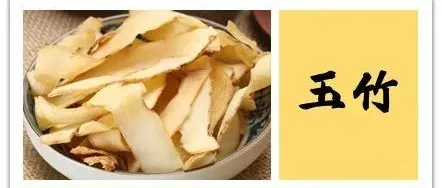
Yu Zhu (Polygonatum odoratum) is a perennial herb of the lily family, with a sweet taste, slightly cold nature, and has the effects of nourishing Yin, moistening dryness, clearing heat, generating fluids, and stopping cough. It is mainly used for dry cough with little phlegm due to lung Yin deficiency, heat disease damaging fluids, irritability, and thirst. It can be used as a nourishing medicine with health benefits.
Yu Zhu enters the lung and stomach meridians, nourishing the Yin of the lung and stomach without being greasy, clearing heat without being excessively cold, making it a gentle and moistening remedy for dry cough and irritability due to lung and stomach Yin deficiency. It can also treat external pathogens in Yin deficiency, used in combination with exterior-releasing herbs, having the characteristic of nourishing Yin without retaining pathogens.

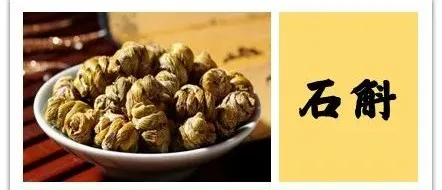
Shi Hu (Dendrobium nobile) is first recorded in the “Shennong’s Classic of Materia Medica” as a top-grade herb, belonging to the category of Yin-nourishing herbs. Tie Pi Shi Hu (Iron Skin Dendrobium) is the finest among them, named for its iron-green skin.
Shi Hu has a sweet taste and is slightly cold. It enters the stomach, lung, and kidney meridians. Its main functions include generating fluids, clearing the stomach, nourishing Yin, and clearing heat. It is used for heat diseases damaging fluids, thirst, Yin deficiency stomach pain, post-illness heat, and Yin damage causing dim vision. The “Shennong’s Classic of Materia Medica” states: “It is used for injuries to the middle, relieving obstruction, lowering Qi, replenishing the five organs, strengthening Yin, and long-term use thickens the intestines and stomach, prolonging life.” Therefore, it is very effective for treating symptoms such as fluid deficiency, dry mouth, heat, irritability, dry red tongue, or no coating. Shi Hu can also nourish the kidneys and improve vision, treating blurred vision caused by liver and kidney deficiency, especially suitable for the elderly.

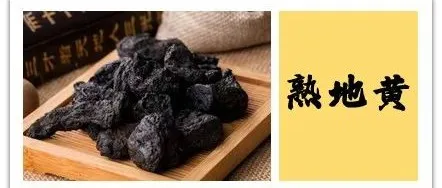
Shu Di Huang (Rehmannia glutinosa) is a processed product of raw Rehmannia, with a black, shiny surface, soft and flexible texture, sweet taste, and slightly warm nature. It has the effects of nourishing Yin, replenishing blood, and benefiting essence and marrow. It is used for liver and kidney Yin deficiency, soreness of the lower back and knees, tidal fever, night sweats, nocturnal emissions, internal heat causing thirst, blood deficiency leading to pale complexion, palpitations, irregular menstruation, dizziness, tinnitus, and premature graying of hair. Shu Di Huang is sticky in nature, which can hinder digestion, so it is contraindicated for those with weak spleen and stomach, Qi stagnation, phlegm accumulation, abdominal distension, and loose stools.
The difference between Shu Di Huang and Sheng Di Huang (Raw Rehmannia) is: Sheng Di Huang is cold in nature, functions to clear heat and cool the blood, nourish Yin, replenish the kidneys, and generate fluids to relieve thirst; while Shu Di Huang’s nature changes from cold to slightly warm, and its function also changes to become a blood tonic, with effects of nourishing Yin and replenishing blood, used for blood deficiency and related symptoms.

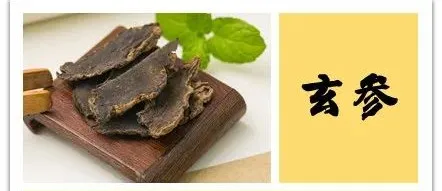
Xuan Shen (Scrophularia ningpoensis) is the root of the plants Scrophularia and North Scrophularia. It has a sweet, bitter, and salty taste, and is slightly cold in nature, with effects of clearing heat, cooling blood, nourishing Yin, and reducing fire, detoxifying, and dispersing masses. It is mainly used for warm diseases with heat and blood, body heat, thirst, red tongue, rashes, bone steaming cough, irritability, constipation due to fluid damage, blurred vision, sore throat, scrofula, and carbuncles. The “Compendium of Materia Medica” states: “Xuan Shen, with its extreme Yin nature, specializes in treating heat diseases, and its bitter taste helps to drain downward, thus it can treat heat accumulation in the organs.” Note that it is contraindicated for those with dampness in the spleen and stomach and loose stools.

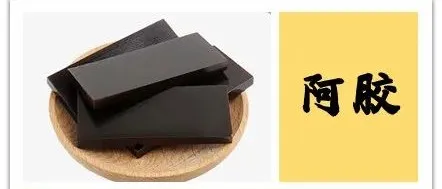
Ejiao (Donkey-hide Gelatin) is a gelatin block made from the skin of the donkey after hair removal.
The earliest pharmacological work in China, the “Shennong’s Classic of Materia Medica”, records: “(Ejiao) is produced in Dongping County, made by boiling cowhide, originating from Dong’e.” Ejiao is a genuine medicinal material produced in Dong’e, and its name comes from its place of origin.
Ejiao is known as one of the “Three Treasures of TCM Nourishment” along with Ginseng and Deer Antler. Ejiao has the effects of nourishing blood, nourishing Yin, moistening dryness, and stopping bleeding. It is used for blood deficiency, pale complexion, dizziness, palpitations, irritability, insomnia, and dry cough due to lung dryness. Note that although Ejiao is a nourishing product, it is not suitable for everyone, such as those prone to internal heat, those with blood stasis, women during menstruation, and patients with colds or diarrhea. It should be used cautiously in those with weak spleen and stomach, vomiting, diarrhea, abdominal distension, and excessive phlegm.

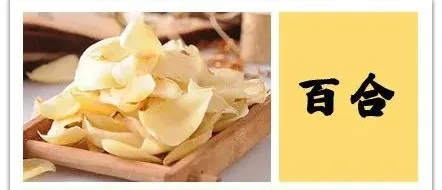
Bai He (Lily Bulb) has a sweet taste, slightly bitter, and slightly cold nature. It enters the heart and lung meridians. It has the effects of nourishing Yin, moistening the lungs, clearing the heart, and calming the spirit. It is used for chronic cough due to Yin deficiency, phlegm with blood, late-stage heat diseases, residual heat, or irritability and insomnia caused by emotional distress, as well as for abscesses and damp sores. Note that it is contraindicated for cough due to wind-cold and those with diarrhea due to cold.

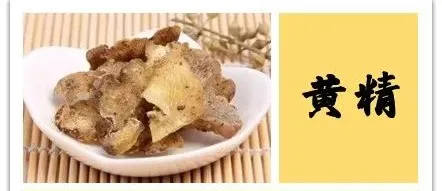
Huang Jing (Polygonatum sibiricum) is the dried rhizome of the plants Daxuanjing, Jitou Huangjing, and Jiangxing Huangjing. According to its shape, it is commonly referred to as “Da Huangjing”, “Jitou Huangjing”, and “Jiangxing Huangjing”.
According to the “Benjing Fengyuan”, “Huang Jing is the best product for nourishing the middle palace, benefiting Qi, harmonizing the five organs, strengthening the muscles, and solidifying the bones, all of which are functions of nourishing Yin.”
Huang Jing has a sweet and neutral taste, entering the spleen, lung, and kidney meridians. It has the effects of nourishing Yin, moistening the lungs, benefiting the spleen, and replenishing Qi, as well as nourishing the kidneys and filling essence. It is used for Yin deficiency cough, dry cough due to lung dryness; spleen deficiency with fatigue, dry mouth, thirst; kidney deficiency with soreness of the lower back and knees, impotence, nocturnal emissions, tinnitus, premature graying of hair, and weakness. Note that Huang Jing is sticky in nature, which can promote dampness, so it is not suitable for those with spleen deficiency and dampness, excessive phlegm, and diarrhea.

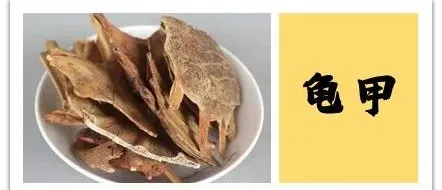
Gui Jiao (Tortoise Shell) is the carapace and plastron of the turtle. It has the effects of nourishing Yin, subduing Yang, benefiting the kidneys, strengthening bones, nourishing blood, and stabilizing menstruation to stop excessive bleeding. It is commonly used for Yin deficiency with tidal fever, bone steaming, dizziness, internal wind, weakness of the muscles and bones, forgetfulness due to heart deficiency, and excessive menstruation.
Gui Jiao and Bie Jiao (Soft-shelled Turtle Shell) can both nourish Yin and clear heat, subduing Yang and calming internal wind, used for Yin deficiency heat, Yin deficiency with Yang hyperactivity, and internal wind disturbance. Gui Jiao is particularly effective for nourishing Yin, thus often used in Yin-nourishing formulas; it can also benefit the kidneys and strengthen bones, treating soreness of the lower back and knees, while Bie Jiao is rarely used. Bie Jiao is better for softening and dissipating masses, commonly used for abdominal masses and malaria, while Gui Jiao does not have this effect.
Others include: Sang Shen (Mulberry Fruit), which nourishes blood and Yin, generates fluids and relieves thirst; Mo Han Lian (Eclipta prostrata), which benefits the kidneys and nourishes Yin, cools blood and stops bleeding; Nu Zhen Zi (Ligustrum lucidum), which nourishes Yin and clears heat, benefiting the liver and kidneys; Zhi Mu (Anemarrhena asphodeloides), which nourishes Yin and reduces fire, moistens dryness and promotes bowel movements; Gou Qi Zi (Goji Berries), which nourishes the liver and kidneys, benefits essence and improves vision; Shan Zhu Yu (Cornus officinalis), which nourishes the liver and kidneys, consolidates the kidneys and astringes essence.
There are many Chinese patent medicines for Yin deficiency, and differentiation is necessary for selection. For dizziness and tinnitus caused by liver and kidney Yin deficiency, as well as soreness of the lower back and knees, insomnia with many dreams, and night sweats, Li Wei Di Huang Wan can be selected; for Yin deficiency with excess heat, Zhi Bai Di Huang Wan or Da Bu Yin Wan can be selected; for true Yin deficiency, Zuo Gui Wan can be selected; for insomnia due to heart Yin deficiency, Tian Wang Bu Xin Wan can be selected; for cough due to lung and kidney Yin deficiency, Bai He Guo Jin Wan or Yang Yin Qing Fei Wan can be selected; for stomach pain due to stomach Yin deficiency, Yin Xu Wei Tong Jiao Nang can be selected.

Images sourced from the internet, thanks to the image authors. The varieties involving manufacturers are for learning and understanding purposes only and do not represent a recommendation!
Welcome to submit articles
Editor WeChat: druglive, vipnote
Article requirements: Professional articles related to clinical medication
Article format: Word document

Listen to the Drug Review Center, and improve a little every day!

